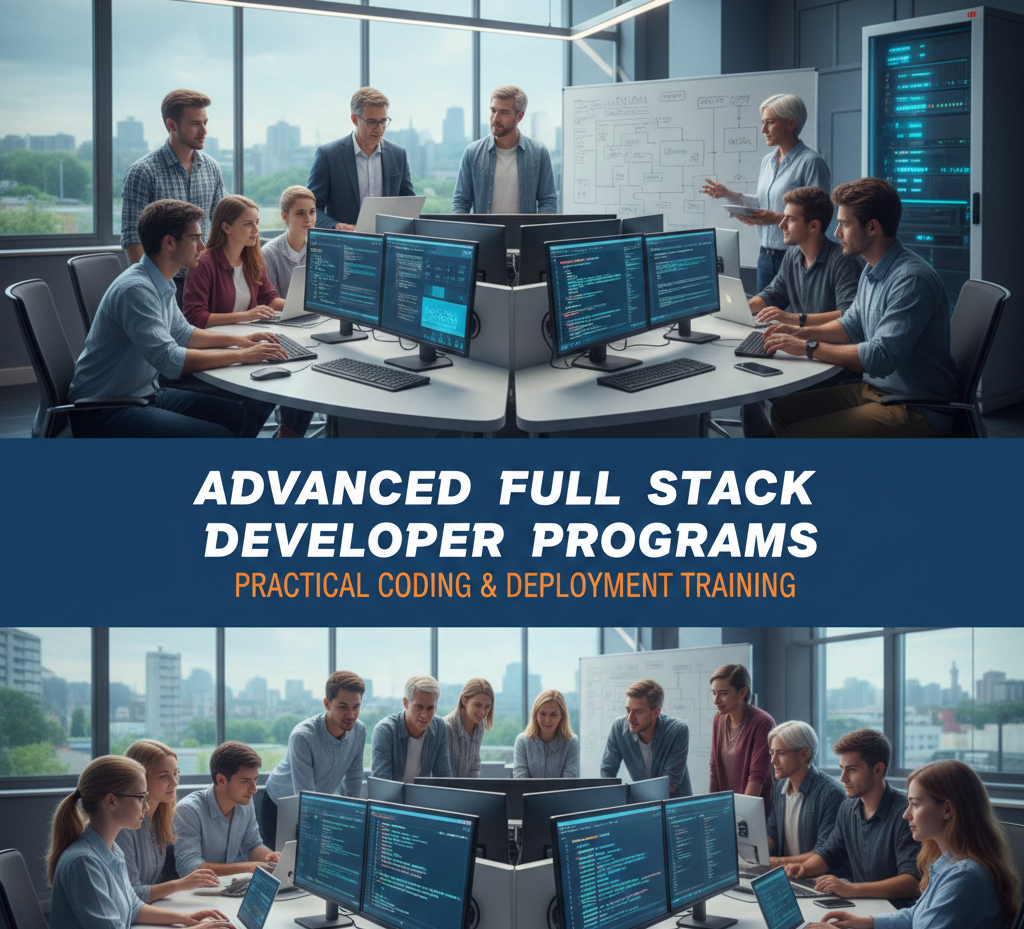In today's dynamic tech landscape, the demand for skilled full stack developers is at an all-time high. Organizations seek professionals who can seamlessly navigate both the front-end and back-end of web applications. To cater to this growing need, advanced full stack developer programs are designed to equip aspiring developers with practical coding and deployment skills. This article explores the key elements of these programs and why they are essential for anyone looking to thrive in the tech industry.
Understanding Full Stack Development
Full stack development encompasses both front-end and back-end technologies. Front-end developers focus on the user interface and user experience, leveraging languages and frameworks like HTML, CSS, JavaScript, React, or Angular. On the other hand, back-end developers work on server-side operations, utilizing programming languages like Node.js, Python, Ruby, or PHP, along with databases such as MySQL, MongoDB, or PostgreSQL.
An effective full stack developer possesses a strong grasp of both realms, allowing them to create cohesive applications that are user-friendly and robust. This blend of skills is what makes advanced full stack developer programs so valuable, as they address both areas comprehensively.
Key Components of Advanced Full Stack Developer Programs
1. Comprehensive Curriculum
Advanced full stack developer programs typically offer a well-rounded curriculum that covers a wide range of technologies and tools. This includes:
- Front-End Technologies: Deep dives into HTML, CSS, and JavaScript, along with popular frameworks like React, Angular, and Vue.js. Understanding responsive design principles and accessibility is also crucial.
- Back-End Technologies: Instruction on server-side programming languages, API development, and database management. Students learn how to build and interact with RESTful APIs, manage authentication, and manipulate databases.
- DevOps Practices: Modern developers must understand deployment processes. Programs focus on continuous integration/continuous deployment (CI/CD) practices, cloud services like AWS or Azure, and containerization using Docker.
- Version Control Systems: Mastery of Git is essential for collaboration in coding projects. Programs provide hands-on experience with version control systems, allowing students to track changes and work in teams effectively.
2. Hands-On Projects
Theory alone is insufficient in the fast-paced tech world. Advanced full stack developer programs emphasize project-based learning, allowing students to apply their knowledge in practical settings. Participants often engage in the following:
- Real-World Projects: Students work on projects that mirror real-world scenarios, from building fully-functioning web applications to creating APIs. This experience is invaluable when stepping into the workforce.
- Portfolio Development: By the end of the program, students have a robust portfolio showcasing their projects. This portfolio becomes a crucial tool for job applications, demonstrating their skills and capabilities to potential employers.
3. Mentorship and Networking Opportunities
Building a network is crucial in the tech industry. Advanced full stack developer programs provide access to mentors and industry professionals who can offer guidance and insights:
- Mentorship Programs: Experienced developers often mentor participants, providing personalized advice, answering questions, and helping them navigate their career paths.
- Networking Events: Many programs include networking events where students can meet industry professionals and other learners. These connections can lead to internships, job opportunities, and collaborative projects in the future.
Why Choose Advanced Full Stack Developer Programs?
1. Industry-Relevant Skills
The tech industry evolves rapidly. Advanced full stack developer programs are designed to stay ahead of these changes, ensuring that participants acquire the most relevant and up-to-date skills. This adaptability makes graduates highly sought after by employers.
2. Flexibility and Accessibility
Many advanced full stack developer programs are available online, providing flexibility for working professionals or individuals with other commitments. Courses can be taken at a pace that suits the individual learner, making education more accessible than ever.
3. Strong Career Prospects
Graduates of these programs are often well-prepared to enter the workforce. The comprehensive skill set acquired through practical training and real-world experience positions them as competitive candidates in a growing job market. Full stack developers are particularly appealing to employers because of their versatility and ability to work on multiple aspects of a project.
4. Lifelong Learning Opportunities
Technology is ever-changing, and the journey doesn’t end after completing a program. Advanced full stack developer programs often provide ongoing resources and learning materials, empowering graduates to continue honing their skills throughout their careers.
Conclusion
In a world where technology underpins nearly every industry, equipping oneself with full stack development skills is a strategic move for anyone looking to forge a successful career in tech. Advanced full stack developer programs provide the essential training needed to become proficient in both front-end and back-end technologies, facilitating a well-rounded and highly marketable skill set.
At Navigo Academy, we offer comprehensive full stack developer programs that focus on practical coding and deployment training tailored to today’s industry standards. Our curriculum is designed to empower you with both the knowledge and hands-on experience necessary to excel in the tech landscape. Start your journey with us today and unlock your potential as a full stack developer.





Comments